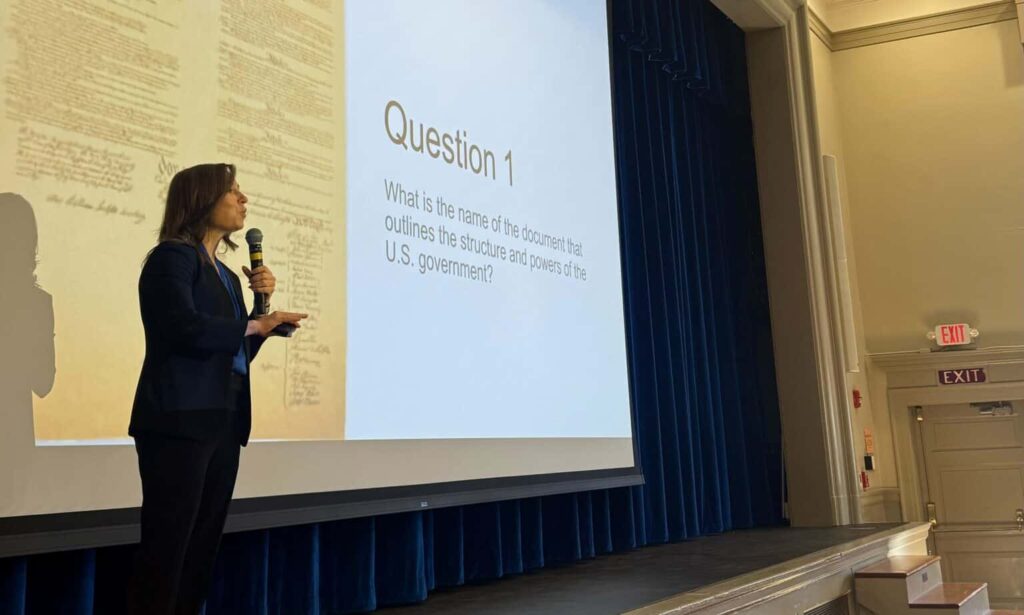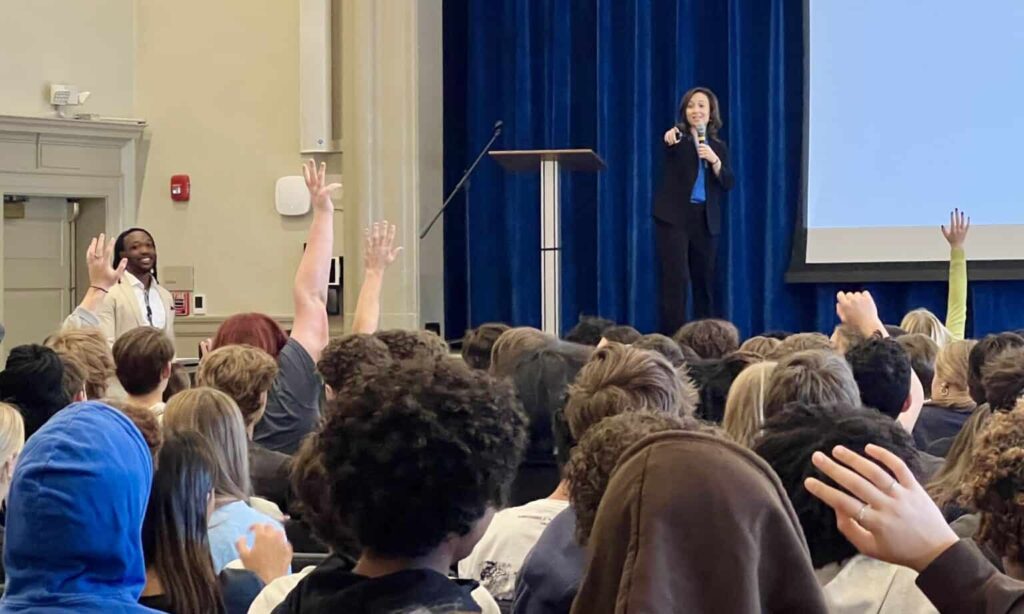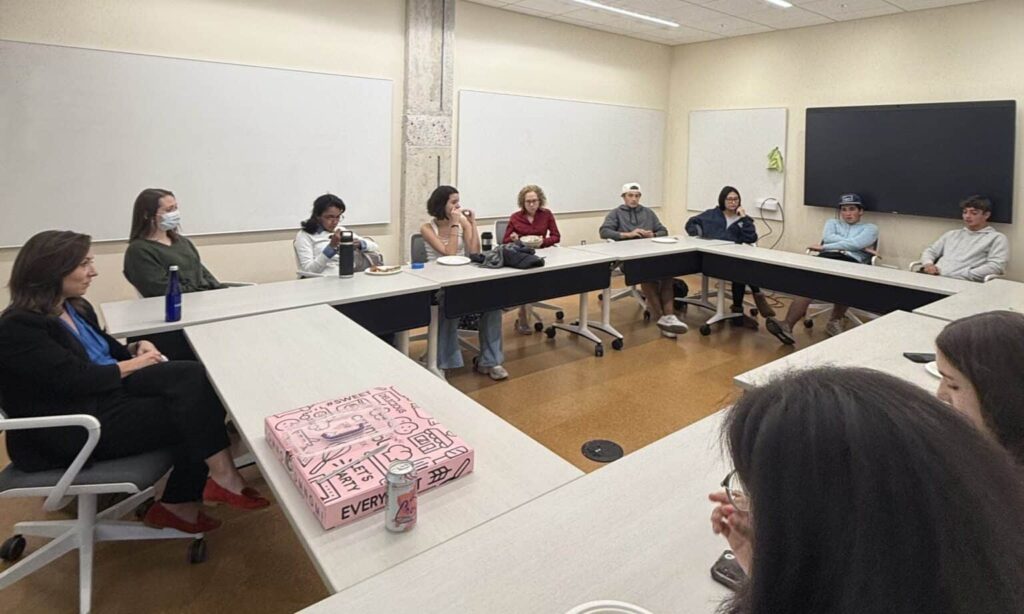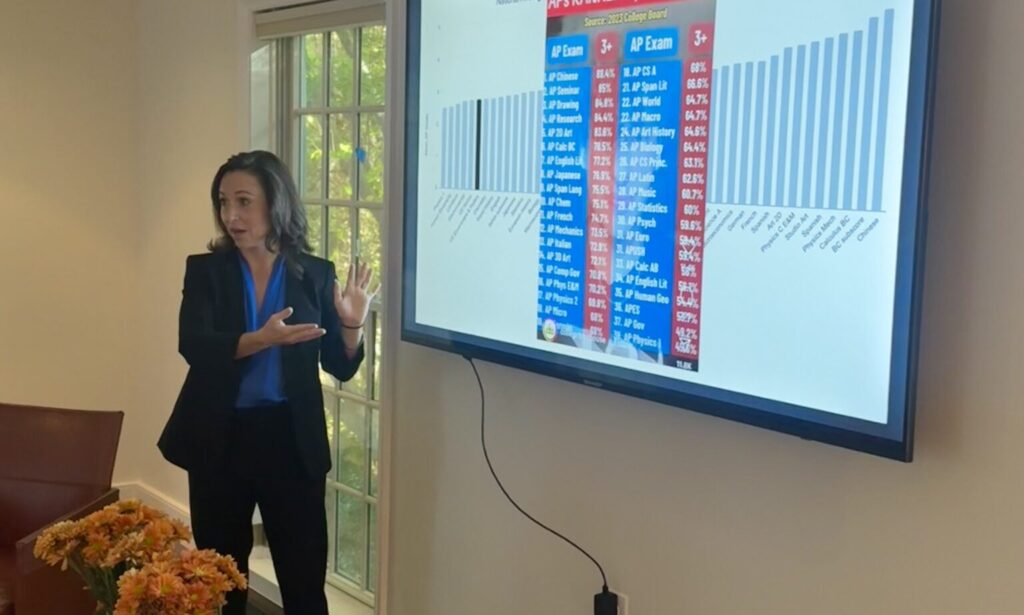
Beaver welcomed author Lindsey Cormack to campus this week to speak to students, faculty, and families about democracy and the role students play in it. Cormack’s latest book, How to Raise a Citizen (And Why it’s Up to You to Do It), touches on the importance of students developing an understanding of the political system and getting involved at an early age.
As we prepare for the election ahead, we’re thinking about how we can arm our students with the ability to think civically. Even though a majority of our students can’t vote, what role can they still play and not feel powerless?
Delonte Egwuatu, Chief Engagement and Inclusion Officer

Cormack spoke at an Upper School meeting with the goal of having students consider the big picture of democracy. By reviewing the branches of government, the Constitution, and other key points associated with a civics education, Cormack helped to contextualize current conversations regarding the upcoming election.

Later in the day, students had the opportunity to drop in and ask Cormack further questions in an unstructured conversation. Students used this space to express their concerns about the election, their opinions on the state of democracy, and their questions about civic engagement. Questions included…
Do you believe in polls? Do you think they actually give an accurate description of where we are?
Student question
How do I have discussions with people who I may have opposite political beliefs with, but still maintain friendship?
Student question

Parents and caregivers also had the chance to hear from Lindsey Cormack and ask questions of their own. During a parent/caregiver breakfast prior to the Upper School meeting, Cormack touched on the importance of parents taking a role in helping students engage with democracy. “We wanted to explore how parents and caregivers can partner with us as an institution,” says Delonte Egwuatu, Beaver’s Chief Engagement and Inclusion Officer. “How can we help support their child and recognize the role they play in the election?”
The conversations initiated by Cormack’s visit will continue in the weeks ahead. In a series of optional Mini-Studios focused on the election, students will have the chance to dive deeper into these topics. Similarly, students are encouraged to develop–and use–their voices to get involved civically, even if they can’t vote.